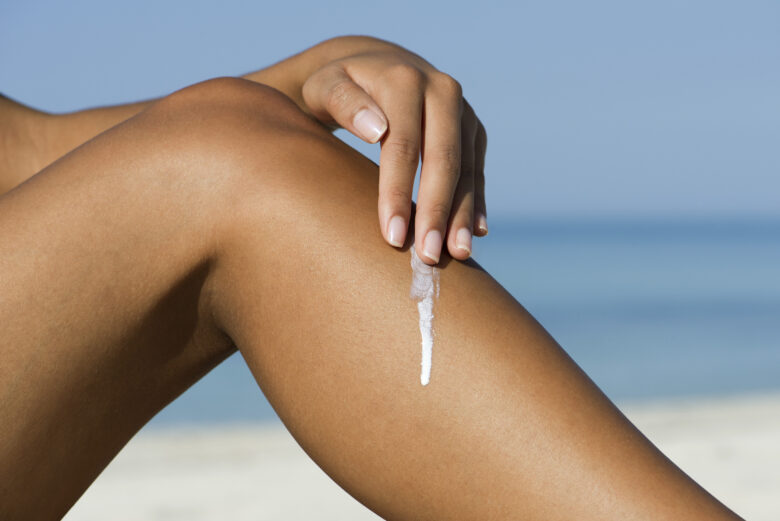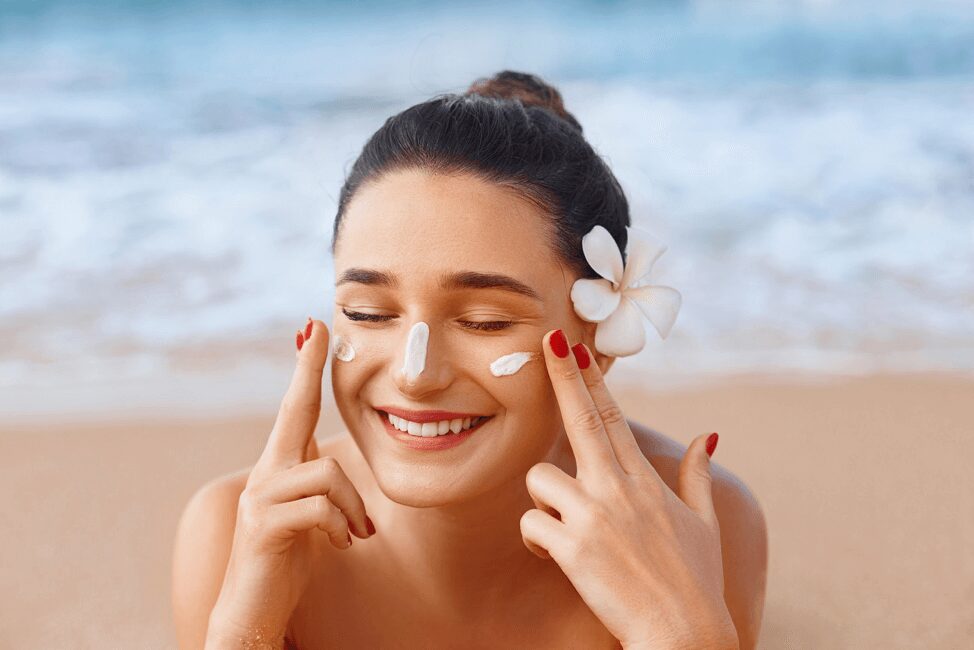When you buy sunscreen, what do you think you’re getting? Most people would say they’re getting a product that will protect them from the sun’s harmful UV rays. But is that really the case? In this blog post, we will explore the difference between normal and mineral sunscreen and explain what each one offers. From sunscreens that are good for your skin to those that offer more protection, read on to learn more about what you need to know before purchasing any product.

Source: npr.org
Contents
Understanding the sunscreen chemical ingredients
Sunscreen chemicals are classified by their ability to absorb UV radiation and protect the skin from sunburn and skin cancer. Mineral-based sunscreens such as titanium dioxide and zinc oxide are effective at blocking both UVA and UVB radiation, while oxybenzone is only effective against UVB radiation. Chemical products, on the other hand, use a variety of agents to achieve broad-spectrum protection. These include benzophenone (oxybenzone), octinoxate, octisalate, octocrylene, and petrolatum.
The active ingredients in products can be grouped according to their mode of action:
All mineral sunscreens work by reflecting or breaking down the primary component of sunlight, which is ultraviolet (UV) radiation. This type of sunscreen does not require a prescription but must be reapplied every two hours during peak activity times.
Chemical sunscreens work by absorbing UV radiation and converting it into heat that damages the cell DNA within the skin. These types of products do not require a prescription but may need to be reapplied more frequently depending on the product used.
Active ingredients in mineral-based and chemical sunscreens can also be further divided into two categories based on their potential irritation properties: sensitive agents and irritants. Sensitive agents are less likely to cause irritation but may not offer ultimate protection against the sun’s rays; irritants are more likely to cause skin irritation but offer greater protection against the sun’s rays.
Ingredients can also be grouped by their potential environmental impacts:
Mineral-based sunscreens are typically less harmful to the environment than chemicals, as they do not require any additional processing.
Chemical sunscreens can release toxic compounds when they are damaged or broken down, which can harm aquatic life and soil.

Source: getldi.com
How to Choose the Right Product for You
There are a few things to consider when choosing a sunscreen: what skin type you have, what sun exposure you get, and what ingredients are in the sunscreen. Here is a breakdown of each category:
Skin Type:
Normal skin needs an SPF of 30 or higher. Mineral sunscreens offer more protection against UVA and UVB rays but can be heavy and cause skin irritation in those with sensitive skin.
Sun Exposure:
All shades need at least an SPF of 15; lighter shades need up to an SPF of 50+. If you’re spending long periods outside without shade, aim for a higher SPF like 50+.
Ingredients:
Many sunscreens now also contain antioxidants which help protect the cells that make up your skin from damage. Look for words like “antioxidant,” “free radical protection,” or “vitamin E” on the label.

Source: self.com
What is mineral sunscreen?
Mineral sunscreen is a type of product that uses natural ingredients like zinc oxide and titanium dioxide to protect the skin from the sun. These ingredients are insoluble in water, so they form a protective barrier on the skin that filters out UV radiation. The light-reflecting particles in mineral sunscreen scatter sunlight instead of absorbing it, so you get a higher level of protection against the sun’s rays.
These products are generally more expensive than regular ones, but they offer greater protection against the sun’s harmful rays. Some people also find them more effective in protecting their skin from UVA and UVB radiation.
Is it better than regular?
Most experts agree that mineral sunscreen is better for the skin than regular because it offers more protection. However, some people may have an allergic reaction to ingredients in mineral sunscreen. So if you’re concerned about your skin’s sensitivity to sunscreens, it’s best to test one out before applying it to your entire body.

Source: self.com
It is a good choice for people with sensitive skin
Mineral sunscreen is a good choice for people with sensitive skin because it does not contain chemicals that could irritate or cause allergic reactions. It offers some of the same benefits as traditional products, such as protection against the sun’s ultraviolet (UV) radiation and prevention of skin aging, but it is less likely to cause skin irritation.
Some people with sensitive skin choose mineral products because they generally don’t contain any harsh chemicals that can aggravate their skin. Some products also offer additional benefits like being anti-inflammatory and boosting collagen production.
How to apply mineral sunscreen:
- Apply the product liberally before sun exposure, and reapply as needed. Mineral sunscreens are water resistant but not waterproof, so be sure to take a break every few hours and re-apply.
- Choose a product with a high UVA protection factor (more than 50).
- Apply liberally to all exposed skin areas including the face, neck, ears, and hands.
- Reapply after swimming or sweating, or after towel drying.
- Avoid contact with eyes. If you do get sunburned, rinse with cool water and apply an ice pack to the burn for 20 minutes or until it feels numb to the touch.

Source: eucerin.ca
Conclusion
Sunscreen is one of the most important products you can take for your skin. Not only does it protect you from the sun’s harmful UV rays, but it can also help improve your complexion and reduce the appearance of age spots and other blemishes. So what are the differences between normal sunscreen and mineral? Normal sunscreen is made with chemicals such as oxybenzone, octinoxate, and Titanium dioxide. These chemicals can be potentially harmful if they are absorbed through the skin over a long period of time. Mineral, on the other hand, is made with natural ingredients like zinc oxide and titanium dioxide. These ingredients are more effective at protecting against UVA and UVB light, meaning they will provide longer-lasting protection without any worrying side effects.
